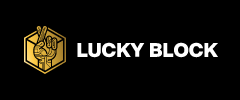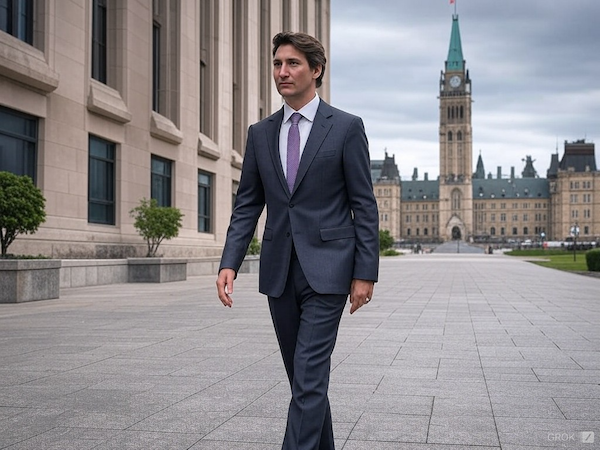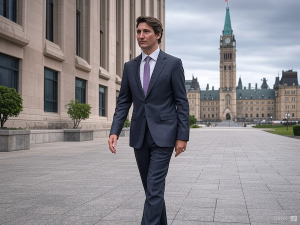In Canada, rumors have circulated that Prime Minister Justin Trudeau might be contemplating stepping down as leader of the Liberal Party. This speculation emerged shortly after the resignation of Chrystia Freeland, formerly Canada’s finance minister, who publicly stated that she no longer feels she has the prime minister’s confidence.
Background on the Freeland Resignation
Freeland, who had served as finance minister since August 2020 and previously held roles as deputy prime minister and foreign affairs minister, announced her departure on the social media platform X. While official reasons remain limited to her public statements, multiple sources have reported that Trudeau informed Freeland he preferred to see her in a different ministerial position rather than continuing as finance minister. Freeland’s refusal of that offer and subsequent decision to leave her post highlighted a growing divide in Canada’s political leadership. She described stepping down as the only honest route forward, citing fundamental disagreements with Trudeau over Canada’s future direction.
See my letter to the Prime Minister below // Veuillez trouver ma lettre au Premier ministre ci-dessous pic.twitter.com/NMMMcXUh7A
— Chrystia Freeland (@cafreeland) December 16, 2024
Betting Markets Reflect Political Uncertainty
Interest in the Canadian political scene has expanded beyond policymakers, voters, and analysts to include betting enthusiasts. Various sportsbooks and prediction markets are now offering odds on potential outcomes, including whether Trudeau will remain in office and which party will secure a win in the next election.
Casino.org recently reported that certain platforms have installed the Conservatives as heavy favorites. For example, FanDuel listed the Conservatives at -1000 and the Liberals at +1900. The NDP stood at +6000, while any other party was priced at +10000. BetVictor’s odds similarly favored the Conservatives at -1000, placing the Liberals at +500 and the NDP at +3500. BetMGM’s figures also showed strong Conservative odds at -2000, with the Liberals trailing at +800 and the NDP at +2500.
These betting lines align with public opinion polls indicating waning Liberal support. While exact numbers can fluctuate, the overall trend in wagering markets suggests that bettors see a potential shift i
New Finance Minister and Shifting Political Dynamics
Freeland’s exit created a vacancy at the helm of the finance ministry, which was soon filled by Dominic LeBlanc. LeBlanc, a longtime Liberal Member of Parliament and experienced cabinet minister, took over as Canada’s new finance minister amid heightened political tension. His appointment came at a challenging time, as the government faces external trade uncertainties and domestic economic pressures. While the immediate impact of this ministerial change remains unclear, it has added to the overall sense that Canadian politics may be on the cusp of major transformations.
Concerns Influenced by U.S. Political Developments
Adding to the complexity is the broader international backdrop. Recent developments in U.S. politics—specifically the outcome of the latest American elections—have reverberated north of the border. Freeland, in her communications, mentioned worries that former U.S. President Donald Trump’s anticipated policies could include steep tariffs affecting Canada and Mexico, should he return to the White House. During Trump’s previous term, trade uncertainties and tariff threats strained Canada-U.S. relations. The prospect of such measures resurfacing has raised concerns about economic stability and bilateral ties. As Canadian leaders grapple with the possibility of renewed pressure on trade and drug enforcement, these issues may influence both public opinion and government strategy.
Public Opinion and Party Confidence
The Liberal Party, which Trudeau has led since 2013 and successfully brought to power in 2015, is now facing significant headwinds. Recent projections suggest that if an election were held immediately, the Liberals might fall to fourth place—a marked downturn for a party that has governed for the past several years. Public approval ratings for Trudeau have dropped, reportedly hovering around 28%. Such figures indicate growing dissatisfaction and suggest that the party could struggle in the near future, especially against the resurgent Conservatives.
Polls and political analysis forecast that the Conservative Party, currently the Official Opposition, might capture a substantial number of seats if a federal election occurs soon. Some estimates place potential Conservative gains as high as 233 seats, which would hand them a decisive victory. Meanwhile, other parties such as the New Democratic Party (NDP) are also monitoring these shifts closely, as a weakened Liberal Party could rearrange the balance of power in the House of Commons.
n Canadian governance. Such odds are influenced by polling data, recent political events, leadership approval ratings, and other factors that shape the public’s perception of electoral outcomes.
Polymarket’s Prediction Markets Weigh In
In addition to traditional sportsbooks, decentralized prediction markets have entered the fray. Polymarket, a blockchain-based prediction platform, recently launched several markets focused on Canadian political scenarios. At the time of writing, Polymarket users appeared skeptical of a swift exit by Trudeau. One market, “Trudeau resigns by Friday,” reflected only an implied 8% chance of the prime minister stepping down within that short timeframe.
Another Polymarket market, “Trudeau out in 2024,” currently suggests a 12% probability that he will leave office by the end of the year. Meanwhile, the possibility of a federal election taking place in 2024 is considered slim, with bettors assigning only around a 1% chance. Conversely, there is roughly a 46% likelihood, according to Polymarket’s metrics, that Canada will hold an election before April. These figures provide a snapshot of how informed observers and participants in prediction markets gauge the near-term political climate.
Political betting markets like Polymarket not only reflect public sentiment but also serve as a barometer for political stability or instability. The odds for Trudeau’s resignation and the timing of a federal election reflect a market’s perception of political risk, influenced by both domestic and international factors. Recent discussions in political betting forums indicate a growing interest in Canadian politics due to these uncertainties.
Contextualizing Canada’s Political Climate
Canada’s parliamentary system allows the governing party to call an election before the set date, a flexibility that sometimes lends itself to sudden shifts in power. The current minority government, formed by Trudeau’s Liberals after the 2021 election, must maintain support from other parties to pass legislation. If alliances fracture or confidence votes are lost, the timeline for the next election can move unexpectedly.
Freeland’s resignation and the uncertainty about Trudeau’s leadership have emerged at a time when public trust in institutions is under scrutiny worldwide. Meanwhile, the international community watches closely, as Canadian policies—especially those related to trade and immigration—often reflect broader regional cooperation. Canada’s relationships with the United States, the European Union, and other global partners can be influenced by changes at the top of its government.
Trump’s potential tariffs were not just against Canada for economic reasons but also tied to broader geopolitical strategies aimed at reshaping trade relations globally. According to recent analyses, Trump’s administration has considered tariffs as leverage to negotiate better trade deals, particularly focusing on reducing trade deficits with Canada and Mexico. This approach has been discussed in economic forums like the World Economic Forum, where global trade policies are often debated.
Besides Trudeau’s potential resignation, there’s a broader discussion on the shift in Canadian politics towards more conservative policies. This shift is partly due to economic challenges and the need for a new direction in foreign policy, especially concerning the U.S. relationship. The Conservative Party, under Pierre Poilievre, has been vocal about these issues, promising a tougher stance on trade negotiations with the U.S. and internal economic reforms.
Looking Ahead
For now, Justin Trudeau remains prime minister, and Dominic LeBlanc has taken on the finance portfolio. The Liberals retain power, but the party’s waning popularity, combined with the rise of the Conservatives in both polls and betting markets, sets the stage for a potentially dramatic realignment in Canada’s political landscape. As rumors swirl, and as prediction markets and bookmakers continue to watch the odds, Canadians await concrete signals on whether Trudeau will exit the scene or attempt to steer his party into the next electoral contest.
While no official resignation has been announced, the combination of Freeland’s departure, shifting political alliances, and heightened speculation in betting circles ensures that the coming months will be closely watched by political observers at home and abroad.
Public reactions to Freeland’s resignation and Trudeau’s potential exit have been mixed. While some see it as a sign of necessary change, others are concerned about the stability of the government. There’s been an increase in public discourse on social media platforms about leadership, policy direction, and the future of the Liberal Party.

Lucky Block: Pioneering the Future of Crypto Casinos and Sports Betting
A New Era of Betting: Fast, Easy, and Instant
Diverse Gaming and Betting Options
Advanced Crypto Integration with Security at Its Core
Promotions, Licenses, and Security
Why Lucky Block Stands Out
Related News
Lucky Block Casino - Decentralized Gambling Platform

- Bet With Crypto - BTC, ETH, USDT, LBLOCK and More
- Live Dealers - luckyblock.com
- Rated Best New Crypto Casino - No KYC
- Thousands of Slots, Blackjack, Roulette Games



